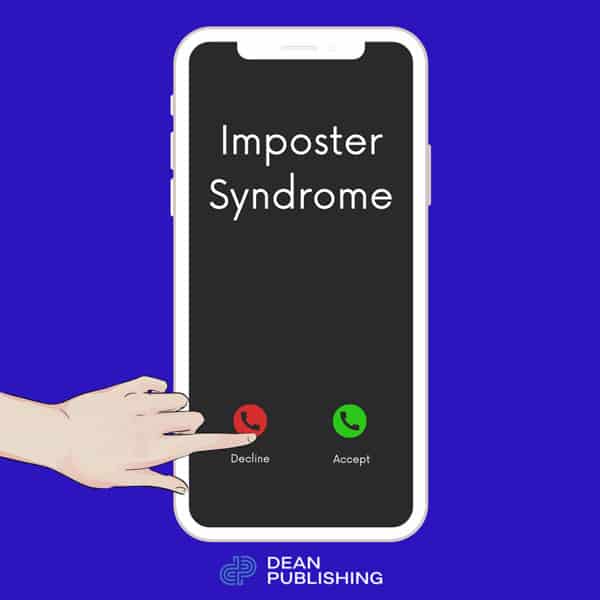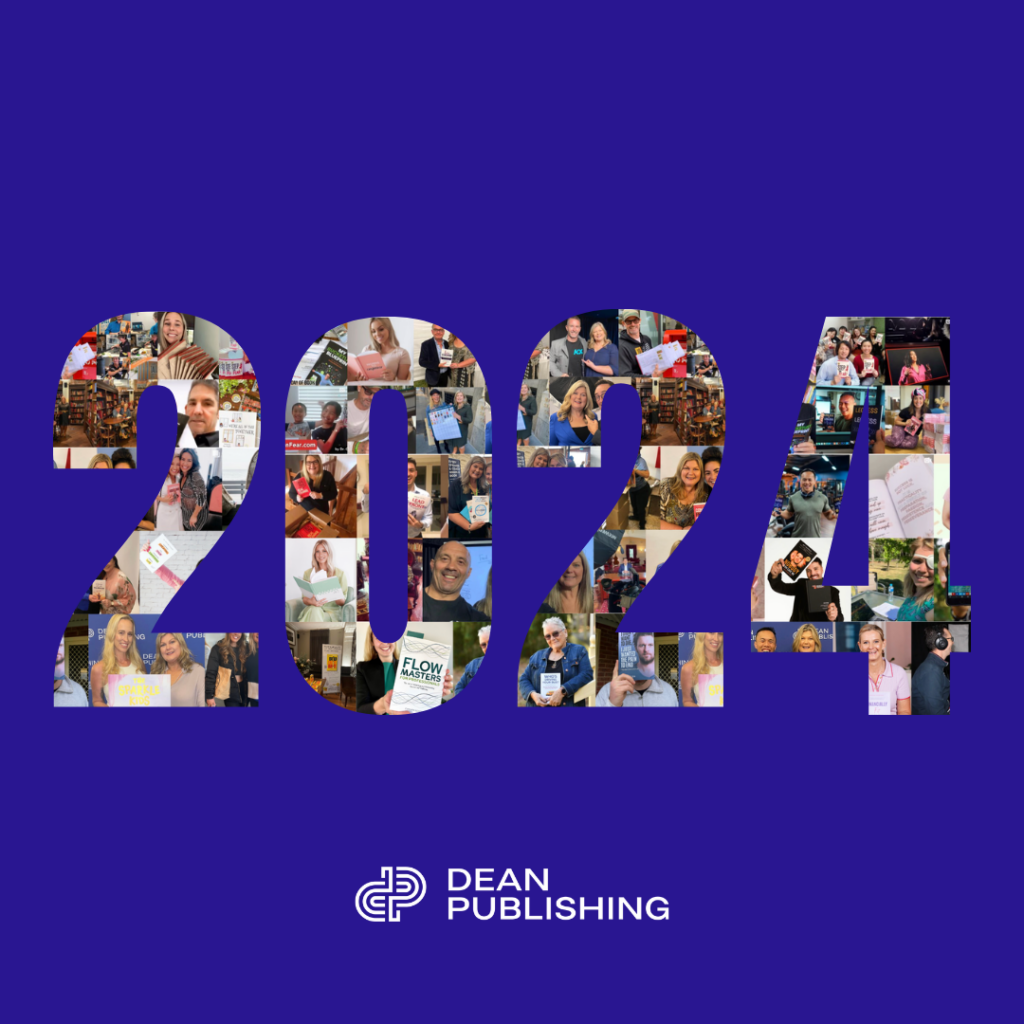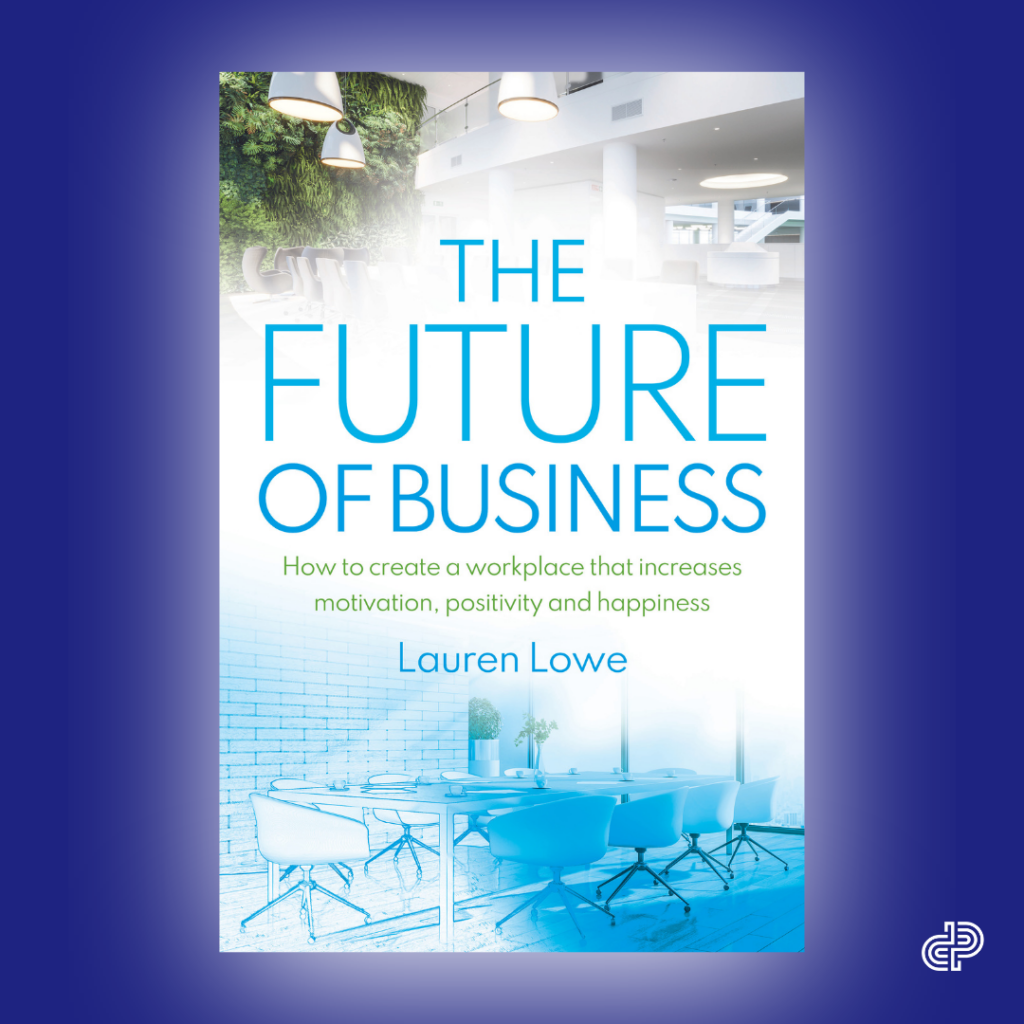
Author Imposter Syndrome: What it is and how to conquer it
Izzy Smith
What is imposter syndrome?
Ah, imposter syndrome, that niggling voice in our heads that tries to convince us that maybe we’re actually not good at whatever it is we’re doing – that we’re inadequate. That critical voice that’s whispers (or screams) — You’re not good enough. You’re not smart enough. You’re not capable. You’re a fraud.
Imposter syndrome makes us doubt our abilities and feel like frauds, and this can be evident in the workplace, particularly in creative industries.
People experiencing imposter syndrome might pressure themselves to be perfect and work harder, negatively impacting mental health and performance, and potentially leading to exhaustion and burnout. Imposter syndrome has a disproportionate effect on high achievers who struggle to understand or acknowledge their accomplishments.
Suzanne Imes and Pauline Rose Clance, psychologists at Georgia State University, developed the concept of imposter syndrome in a 1978 study that focused on high-achieving women. While this study focuses on women specifically, imposter syndrome can affect anyone from any walk of life. Clance and Imes found that, “Despite outstanding academic and professional accomplishments, women who experience the imposter phenomenon persists in believing that they are really not bright and have fooled anyone who thinks otherwise.”1
Indications of imposter syndrome can include:
- “An inability to realistically assess your competence and skills
- Attributing your success to external factors
- Berating your performance
- Fear that you won’t live up to expectations
- Overachieving
- Sabotaging your own success
- Self-doubt
- Setting very challenging goals and feeling disappointed when you fall short.”2
An article in the Harvard Business Review discusses the role workplaces and society, rather than the individual, plays in imposter syndrome. The authors, Ruchika Tulshyan and Jodi-Ann Burey, state that, “Imposter syndrome puts the blame on individuals, without accounting for the historical and cultural contexts that are foundational to how it manifests…” In other words, imposter syndrome can be focused towards fixing people in the workplace instead of fixing the actual workplace. 3 They also assert that exclusion and bias contributes to worsening self-doubt.
Author imposter syndrome affects over 87% of writers
Given the subjectivity of creative industries, and writing specifically, imposter syndrome can hit people working in those industries the hardest. Everyone has different ideas about what constitutes ‘good’ writing, and this subjectivity can encourage imposter syndrome. One study on imposter syndrome found that the creative arts and design industry ranked highest for the percentage of workers who experience imposter syndrome at nearly 87%. Media ranked fifth, at nearly 73%4
So, if you’re a writer and experiencing feelings of imposter syndrome — you’re not alone!
It’s easy to question if you’re ‘skilled’ or ‘qualified’ or ‘good enough’ at writing. You may question if your book really ‘counts’. Maybe what you write doesn’t feel good enough. You might worry that you don’t ‘belong’ as an author even though you seem outwardly successful. Even Maya Angelou experienced the crippling self-doubt of imposter syndrome. She said, “I have written eleven books, but each time I think, ‘Uh oh, they’re going to find out now. I’ve run a game on everybody and they’re going to find me out.”
So many writers experience similar thoughts of ‘being a fraud’ — but that doesn’t mean these thoughts are correct. In fact, they are not correct at all.
So many authors also have misconceptions or preconceived ideas about what ‘being an author’ really means. If you’ve published a book, you have become a published author. If you write, you are a writer.
The disproportionate effect of imposter syndrome on high achievers is perhaps particularly relevant in this case, given that many authors are experts in their fields and are very successful. However, despite what imposter syndrome may tell you, as authors (and people), your stories and knowledge are worth sharing.
Imposter syndrome can particularly affect people who are trying something new, such as first-time authors. Imposter syndrome can be challenging and even paralysing for any author, but new authors who haven’t yet honed their skills or gained confidence in themselves can find this experience especially challenging. The lack of experience can make you critique yourself, procrastinate, excessively self-edit and question if you have what it takes to write.
However, when publishing a book with Dean Publishing, your editorial, publishing and design teams are there to help you. Publishing a book is like having a baby, and like having a child, it takes a village to raise. You have the support and help to encourage you through the process – and your own skills to get you there too. It a team effort and you don’t need to go it alone.
How to conquer imposter syndrome
- Focus on the positives, believe in yourself and listen to praise. When colleagues, bosses, editors or readers praise you and your writing, believe them. Don’t listen to critics. Counteract your limiting beliefs with positive affirmations. Create a positive creative mindset and healthy habits surrounding writing.
- Find a supportive environment. Surround yourself with people that believe in you. Feeling like you belong helps you feel confident. Supportive work environments will “help those employees channel healthy self-doubt into positive motivation, which is best fostered within a supportive work culture.”5 Creating an environment of mutual support will guide, validate and encourage everyone involved.
- Acknowledge your imposter feelings through open communication. Being open about your feelings and doubts can foster discussion and reassurance from people around you. You can gain context, the feelings can become less overwhelming, and shared experiences can help you remember you’re not alone. Reach out to other authors in your community – sharing your fears can help you feel less alone in experiencing them.
- Foster healthy responses to failure – a mistake is a learning experience. Learn to respond to challenges in healthy and productive ways. Value constructive criticism and learn from your mistakes, rather than focusing on the perceived negatives of ‘failure’. Don’t let doubt control your actions and life.
- Self-reflect. Think about your core beliefs about yourself. Do you believe you can achieve your goals and deserve your successes? What does success mean to you? Question thoughts of self-doubt and anxiety – are these thoughts rational? Or do you have more evidence to the contrary?
- Realistically assess your abilities. Recognise your expertise and skills, and focus on what you do well. Build confidence – remind yourself that your work has value.
- Avoid comparing yourself to others. Comparing yourself to people with more experience than you is particularly dangerous. You’re on your own path and holding yourself to others’ standards instead of your own takes away from your capabilities and experiences.
- Talk to mentors. Getting supportive feedback and guidance from mentors can remind you of your successes and help you constructively consider areas that you can improve in.
- Ditch perfection. Perfection is impossible to achieve and holding yourself to these unrealistic standards will end in disappointment. Instead, set realistic goals.
- Be kind to yourself. Showing yourself compassion and understanding will help you achieve healthy and positive self-growth. Own your successes. Reflect on your writing and other successes so far, to validate how far you’ve come.
- Write, write, write. Get rid of preconceived notions about what being an author means – if you write, you are an author. That is valid and legitimate. Also remind yourself that no first draft is perfect.
Don’t try to eliminate imposter syndrome entirely before you begin to write. That may never happen. Write regardless of the critical voice in your head. Most writers still have this little voice sitting on their shoulder peering over their work. Our professional writing and team all know this feeling. But as writers, we can learn to turn down the imposter dial a notch or two, and not let it derail our careers and creative pursuits. As J.K Rowlings shared in her famous speech at Harvard, “Some failure in life is inevitable. It is impossible to live without failing at something. Unless you have lived cautiously, you might not have failed at all, but in which case, you might have failed by default. Failure taught me better things about my own self.”
Sources
1 Clance, PR & Imes, S 1978, ‘The Imposter Phenomenon in High Achieving Women: Dynamics and therapeutic intervention’, Psychotherapy Theory, Research and Practice, vol 15, no 3, viewed 6 February 2022, https://www.paulineroseclance.com/pdf/ip_high_achieving_women.pdf.
2 Cuncic, A 2021, What is Imposter Syndrome?, webpage, Verywell Mind, US, viewed 6 February 2022, https://www.verywellmind.com/imposter-syndrome-and-social-anxiety-disorder-4156469.
3 Tulshyan, R & Burey, J 2021, Stop Telling Women They Have Imposter Syndrome, webpage, Harvard Business Review, Cambridge, viewed 6 February 2022, https://hbr.org/2021/02/stop-telling-women-they-have-imposter-syndrome#:~:text=Imposter%20syndrome%20is%20loosely%20defined,they’re%20deserving%20of%20accolades.
4 Jason 2018, National Study: 62% of UK adults experiencing ‘imposter syndrome’ at work, Access Commercial Finance Limited, UK, viewed 6 February 2022, https://www.fundingguru.com/blog/imposter-syndrome-at-work.
5 Tulshyan, R & Burey, J 2021, Stop Telling Women They Have Imposter Syndrome, webpage, Harvard Business Review, Cambridge, viewed 6 February 2022, https://hbr.org/2021/02/stop-telling-women-they-have-imposter-syndrome#:~:text=Imposter%20syndrome%20is%20loosely%20defined,they’re%20deserving%20of%20accolades.





